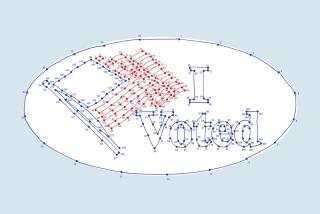Why we vote
It’s 7 p.m. Tuesday. You still haven’t cast your vote. You’ve just learned from your television -- or your BlackBerry -- that the networks have announced that Barack Obama or John McCain is projected to win enough states to assure victory in the electoral college. CNN’s “magic map” is looking more and more monochromatic.
Your first thought is: Why bother? Your second thought should be: I’ll vote anyway -- for three reasons.
Before spelling those out, we acknowledge that the media’s practice of predicting elections is controversial. In 1980, Democratic officials lashed out at the networks for predicting Ronald Reagan’s victory before the polls closed in the West, prompting Jimmy Carter to concede early.
Still mindful of that furor, the networks stress that they won’t predict a result in a particular state until the polls have closed there. Then they’ll make projections based on exit polls and, in some races, returns from selected precincts. If those sources don’t establish a clear favorite, the networks will declare a race too close to call.
The problem with such “restraint,” of course, is that state-by-state predictions could still point to an outcome in the presidential race before some Westerners vote, even if they didn’t add up to the 270 electoral votes needed to win.
So why should Californians schlep to the polling place if the networks have predicted that Obama or McCain already has a majority in the electoral college -- or close enough to one that his election seems inevitable?
* The networks may be wrong. In 2000, prognosticators awarded Florida to Al Gore, only to revoke the prediction later. The news media and the firms they have retained to conduct exit polling believe that the process has been refined. We hope so, but voters shouldn’t count on it.
* There is much more on Tuesday’s ballot than the presidential race. Californians will vote on a raft of ballot measures, most prominently Proposition 8, which would amend the state Constitution to ban same-sex marriage. For better or worse, California entrusts to the electorate decisions that in other states would fall to legislators. That gives voters here more reasons than those elsewhere to show up at the polls.
* Finally, the dilemma posed for California voters by election-night predictions differs only in degree from a choice facing every voter in a contest that looks lopsided. Even in the East, some citizens will stay home because they believe that the outcome either nationally or in their state is foreordained. Civics-bookish as it may sound, voting is a duty as well as a right. Even when the stakes aren’t as high as they are in California this year, exercising the franchise only when you think your vote will “count” is an act of selfishness, not citizenship.
More to Read
Get the L.A. Times Politics newsletter
Deeply reported insights into legislation, politics and policy from Sacramento, Washington and beyond. In your inbox three times per week.
You may occasionally receive promotional content from the Los Angeles Times.










